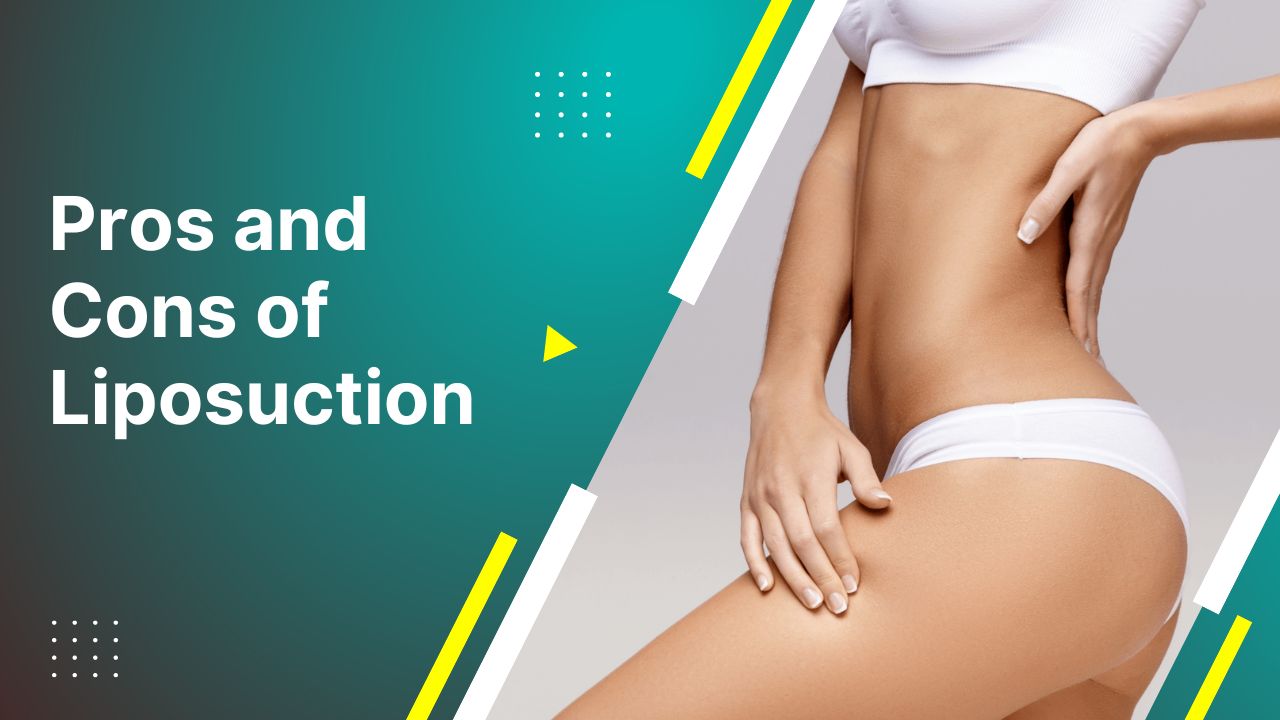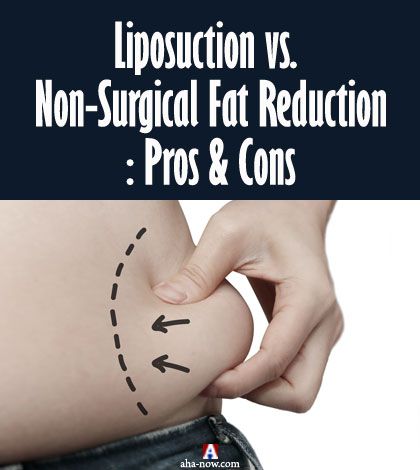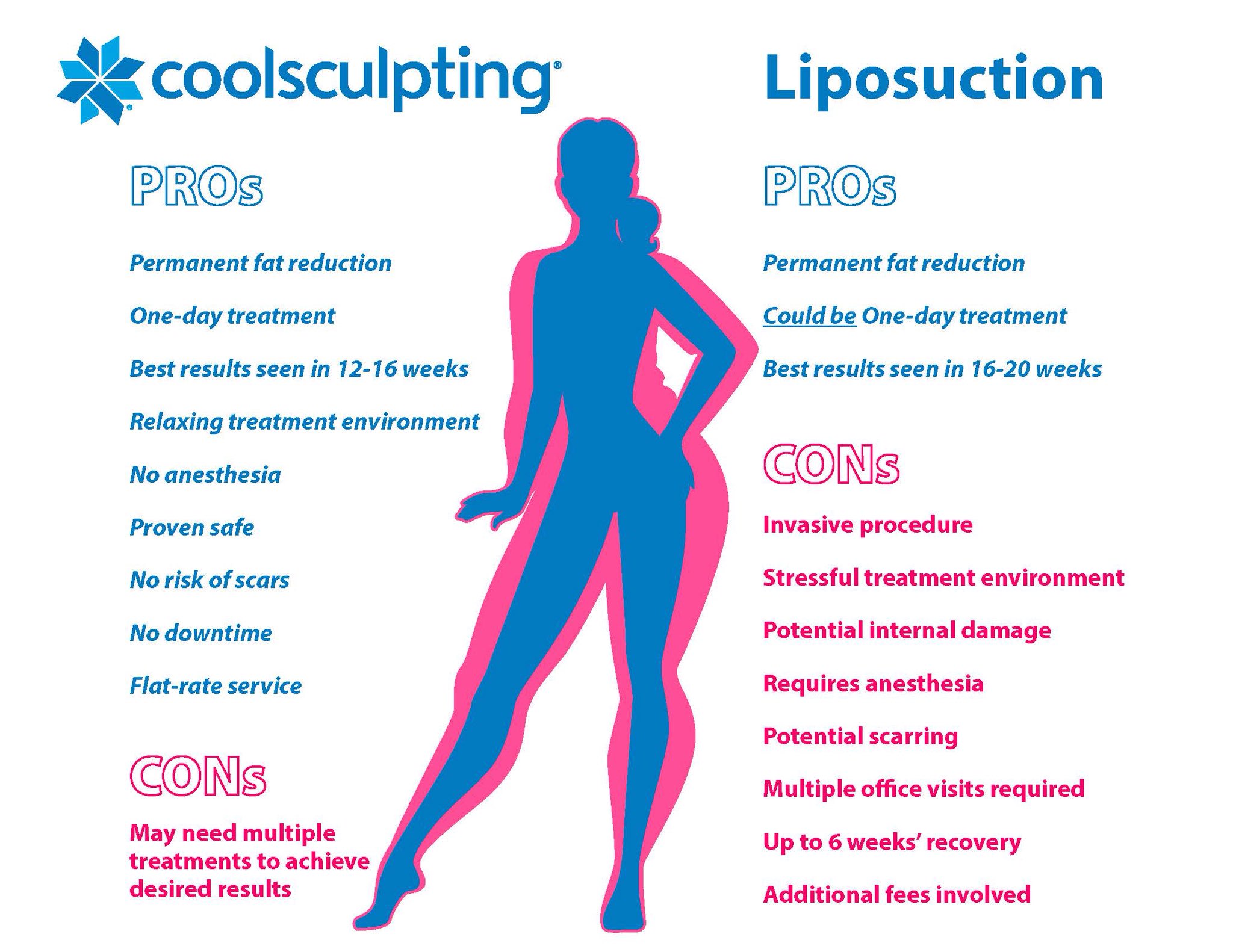The Pros and Cons of Liposuction
Are you considering liposuction? Before you make a decision, it's important to weigh the pros and cons of this popular cosmetic procedure. On one hand, liposuction can effectively remove excess fat from targeted areas, giving you a more sculpted appearance. However, it's not without its downsides. It's crucial to understand the potential risks and side effects associated with liposuction, as well as the limitations of the procedure. By exploring both the benefits and drawbacks, you'll be able to make an informed choice about whether liposuction is right for you.
Definition of Liposuction
Liposuction is a surgical procedure that aims to remove excess fat deposits from specific areas of the body, resulting in improved body contour and a more proportionate physique. This popular cosmetic surgery can be an effective solution for individuals who have been struggling to achieve their desired body shape through diet and exercise alone.
Explanation of Liposuction
During liposuction, a small incision is made in the targeted area, through which a thin tube called a cannula is inserted. With the help of suction, the excess fat is carefully removed, reshaping and contouring the body.
Different Methods of Liposuction
There are several techniques used in liposuction, each with its own benefits and considerations. Traditional liposuction involves the use of a surgical vacuum to remove fat, while tumescent liposuction involves injecting a solution to help numb the area and minimize bleeding. Other methods include ultrasound-assisted liposuction (UAL) and laser-assisted liposuction (LAL), which use ultrasound or laser technology to break down the fat cells before removal.
Pros of Liposuction
Liposuction offers numerous advantages, making it a popular choice for individuals seeking to eliminate stubborn fat and achieve their desired body shape.
Effective Fat Removal
One of the primary benefits of liposuction is its ability to effectively remove unwanted fat deposits, permanently altering the body's contours. This procedure can target areas that are resistant to diet and exercise, such as the abdomen, thighs, buttocks, and arms.
Improved Body Contour
Liposuction can significantly improve body contour and proportion, providing a more sculpted appearance. It can help create a flatter stomach, slimmer thighs, and a more defined waistline, allowing individuals to feel more confident and comfortable in their own skin.

Boosted Self-Confidence
By removing unwanted fat deposits and enhancing body contour, liposuction can have a significant positive impact on one's self-confidence. Many individuals report feeling more attractive and self-assured after undergoing this procedure, which can lead to improved overall well-being and mental health.
Long-Lasting Results
The results of liposuction are generally long-lasting, as the fat cells that are removed do not return or regenerate. However, it is important to maintain a healthy lifestyle to prevent new fat deposits from forming in other areas of the body.
Treatment for Various Body Areas
Liposuction can be performed on various areas of the body, offering versatility in addressing specific concerns. Whether it is excess fat in the abdomen, hips, thighs, arms, or chin, liposuction can be tailored to target the desired areas, providing comprehensive body contouring.
Cons of Liposuction
While liposuction offers significant benefits, it is essential to consider its potential drawbacks and limitations before undergoing the procedure.
Potential Risks and Complications
As with any surgical procedure, liposuction carries certain risks and potential complications. These may include infection, bleeding, blood clots, and adverse reactions to anesthesia. It is crucial to discuss these risks with a qualified surgeon and understand the individual's specific circumstances to make an informed decision.

Scarring
Liposuction typically involves making small incisions in the skin, which may result in visible scarring. However, skilled surgeons strive to make incisions in inconspicuous areas and minimize scarring as much as possible. Additionally, over time, scars tend to fade and become less noticeable.
Uneven Contours
In some cases, liposuction may result in uneven contours or irregularities in the treated areas. This can be due to factors such as uneven fat distribution or the body's natural healing process. Skilled surgeons take great care to achieve smooth and symmetrical results, but it is essential to have realistic expectations and understand that perfect symmetry may not always be achievable.
Temporary Side Effects
Following liposuction, individuals may experience temporary side effects such as swelling, bruising, and numbness in the treated areas. These typically subside within a few weeks but should be expected as part of the recovery process.
Weight Gain After the Procedure
While liposuction removes excess fat from specific areas, it does not prevent weight gain in the future. It is essential to maintain a healthy lifestyle, including a balanced diet and regular exercise, to prevent the accumulation of new fat deposits. Failure to do so may result in an uneven distribution of fat or the development of new problem areas.
Procedure and Recovery
Understanding the procedure and recovery process is crucial for those considering liposuction to make an informed decision and prepare for their journey to a transformed physique.

Preoperative Consultation
The first step in the liposuction process is an initial consultation with a qualified surgeon. During this consultation, the surgeon will assess the individual's overall health, discuss their goals and expectations, and determine their candidacy for the procedure. It is essential to be open and honest during this consultation to ensure that the surgeon can provide the best possible advice and plan.
Surgical Procedure
On the day of the procedure, the individual will be prepared for surgery by the medical team. The surgeon will make the necessary incisions in the targeted areas and carefully insert the cannula to remove the excess fat. The specific technique used will depend on the individual's unique circumstances and the surgeon's expertise.
Anesthesia Options
Liposuction can be performed under various types of anesthesia, depending on the extent of the procedure and the individual's preferences. These options include general anesthesia, local anesthesia with sedation, or tumescent anesthesia. The choice of anesthesia will be discussed and decided upon during the preoperative consultation.
Recovery Process
After the procedure, the individual will be provided with specific postoperative instructions by the surgeon. This may include wearing compression garments, managing pain and discomfort, and avoiding certain activities or medications that could interfere with the healing process. It is crucial to follow these instructions diligently to ensure a smooth and successful recovery.

Postoperative Care
Postoperative care is a critical aspect of the liposuction journey. This may involve attending follow-up appointments with the surgeon to monitor progress, addressing any concerns or questions, and gradually resuming regular activities and exercise as advised. The surgeon will provide guidance on how to care for the incision sites and manage any side effects that may arise during the recovery period.
Cost and Insurance Coverage
Before undergoing liposuction, it is essential to consider the financial aspects and determine the cost of the procedure.
Overview of Liposuction Costs
The cost of liposuction can vary depending on several factors, including the surgeon's experience, the complexity of the procedure, the number of treatment areas, and the geographic location. On average, liposuction costs can range from several thousand dollars to tens of thousands of dollars.
Factors Influencing the Cost
Several factors can influence the cost of liposuction. These include the surgeon's fees, facility fees, anesthesia fees, preoperative tests, postoperative garments, and medications. It is important to discuss the breakdown of costs with the surgeon before making a final decision.
Insurance Coverage for Liposuction
In general, liposuction is considered a cosmetic procedure and is not covered by insurance. However, in certain cases where liposuction is performed for medical reasons or to treat specific conditions such as lipedema, insurance coverage may be possible. It is advised to consult with the insurance provider and the surgeon to determine the eligibility for coverage.
Choosing a Surgeon
Selecting a qualified and experienced surgeon is of paramount importance when considering liposuction. The expertise and skill of the surgeon significantly impact the success and safety of the procedure.

Importance of Selecting a Qualified Surgeon
Choosing a qualified surgeon ensures that the liposuction procedure is performed safely and effectively. An experienced surgeon will have the necessary training and expertise to assess candidacy, plan the procedure, and minimize potential risks or complications. Additionally, a qualified surgeon can provide guidance and support throughout the process, ensuring optimal results.
Researching and Evaluating Surgeons
When researching potential surgeons, it is important to consider their qualifications, certifications, and experience in performing liposuction procedures. Reading patient reviews and testimonials can also provide valuable insights into their skills, bedside manner, and overall patient satisfaction. Additionally, seeking recommendations from trusted sources or consulting with multiple surgeons can help make an informed decision.
Questions to Ask During Consultations
During consultations with potential surgeons, it is crucial to ask questions to gather the necessary information and assess their suitability. Some important questions to consider include:
- How many liposuction procedures have you performed?
- What are the potential risks and complications associated with liposuction?
- What technique do you recommend for my specific concerns?
- Can I see before and after photos of previous liposuction procedures you have performed?
- What can I do to optimize my results and minimize potential risks?
By asking these questions and addressing any concerns or doubts, individuals can gain valuable insights into the surgeon's expertise and approach, aiding in the decision-making process.
Ideal Candidates
While liposuction can be a transformative procedure, not everyone is a suitable candidate. Several factors determine an individual's candidacy for liposuction.
Factors that Determine Candidacy
Ideal candidates for liposuction are typically within a stable weight range but have stubborn fat deposits that are resistant to diet and exercise. They should have good overall health, non-smokers, and have realistic expectations for the results of the procedure. It is important to discuss these factors with the surgeon during the preoperative consultation to ensure that liposuction is a suitable option.
Realistic Expectations
Having realistic expectations is crucial when considering liposuction. While this procedure can improve body contour and eliminate unwanted fat, it is not a solution for significant weight loss or a substitute for a healthy lifestyle. Understanding the limitations and possibilities of liposuction can help individuals set realistic goals and be satisfied with the results.
Health Considerations
Before undergoing liposuction, it is important to address any underlying health conditions or concerns with the surgeon. Certain medical conditions or medications may impact the eligibility for the procedure. Open communication and transparency between the individual and the surgeon are essential to ensure a safe and successful outcome.
Alternatives to Liposuction
While liposuction is a popular and effective cosmetic procedure, there are alternative options available for individuals who may not be suitable candidates or prefer non-surgical approaches.
Non-Surgical Fat Reduction Methods
For individuals seeking non-surgical options, there are several methods available to reduce unwanted fat. These include non-invasive techniques such as cryolipolysis (CoolSculpting), laser fat reduction, and radiofrequency fat reduction. These methods use innovative technologies to target and eliminate fat cells without the need for surgery or downtime.
Exercise and Diet as Alternatives
For individuals who are close to their ideal weight but still have areas of concern, adopting a healthy lifestyle through regular exercise and a balanced diet can be an effective alternative to liposuction. Engaging in cardiovascular exercises, strength training, and following a diet rich in fruits, vegetables, lean proteins, and whole grains can help achieve a leaner and more toned physique.
Comparison with Other Surgical Procedures
In some cases, liposuction may not be the most suitable surgical option for certain concerns. Depending on the individual's specific needs, alternative surgical procedures such as tummy tucks or body lifts may be recommended. Consulting with a qualified surgeon is essential to determine the most appropriate approach for achieving the desired results.
Patient Satisfaction and Feedback
The satisfaction of individuals who have undergone liposuction can provide valuable insights into the benefits and limitations of the procedure.
Statistics on Patient Satisfaction
Numerous studies indicate high levels of patient satisfaction following liposuction. According to a survey conducted by the American Society of Plastic Surgeons, 85% of liposuction patients reported being satisfied or very satisfied with their results.
Common Reasons for Satisfaction
The primary reasons for patient satisfaction following liposuction include improved body contour, enhanced self-confidence, and a greater sense of well-being. Many individuals report feeling more comfortable in their clothes and more confident in social and professional settings, which can have a positive impact on various aspects of their lives.
Common Reasons for Dissatisfaction
While the majority of liposuction patients are satisfied with their results, it is important to acknowledge that dissatisfaction can occur in some cases. Common reasons for dissatisfaction may include unrealistic expectations, inadequate communication with the surgeon, and an unsatisfactory outcome due to factors such as uneven contours or suboptimal fat removal. It is crucial to have open and honest discussions with the surgeon during the preoperative consultation to minimize the risk of dissatisfaction.
Long-Term Lifestyle Changes
Maintaining a healthy lifestyle is essential both before and after undergoing liposuction to ensure long-lasting results and overall well-being.
Importance of Maintaining a Healthy Lifestyle
After liposuction, it is crucial to adopt and maintain a healthy lifestyle to make the most of the procedure's benefits. This includes following a balanced diet, engaging in regular physical activity, and managing stress levels. A healthy lifestyle not only helps maintain the results achieved through liposuction but also promotes overall health and well-being.
Healthy Eating and Exercise Tips
To support a healthy lifestyle after liposuction, individuals should strive to consume a varied and nutritious diet. This includes incorporating plenty of fruits, vegetables, whole grains, and lean proteins, while minimizing processed foods and sugary drinks. Regular exercise that combines cardiovascular activities with strength training can help maintain muscle tone and prevent the accumulation of new fat deposits.
Preventing Weight Gain after Liposuction
While liposuction can remove unwanted fat from specific areas, it is important to remember that it does not prevent weight gain in the future. To maintain the results achieved through liposuction, it is essential to continue following a healthy lifestyle, making mindful choices in terms of nutrition and physical activity. By doing so, individuals can enjoy the long-term benefits of their liposuction procedure.
In conclusion, liposuction is a popular cosmetic procedure that can effectively remove unwanted fat deposits, improve body contour, and boost self-confidence. While it offers numerous benefits, it is important to consider the potential risks and limitations of the procedure. Consulting with a qualified surgeon and having realistic expectations can help individuals make an informed decision. By maintaining a healthy lifestyle and following postoperative care guidelines, individuals can enjoy long-lasting results and minimize the risk of weight gain in the future.






